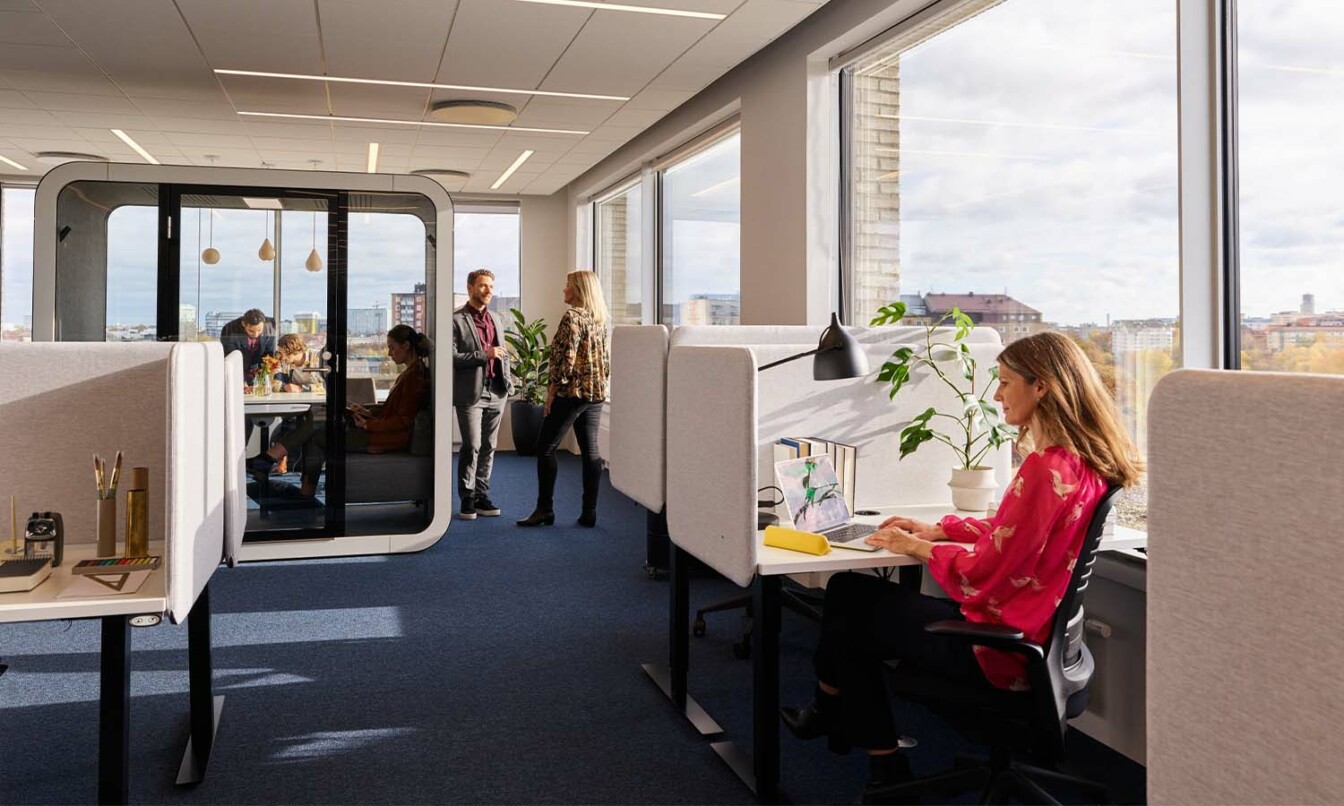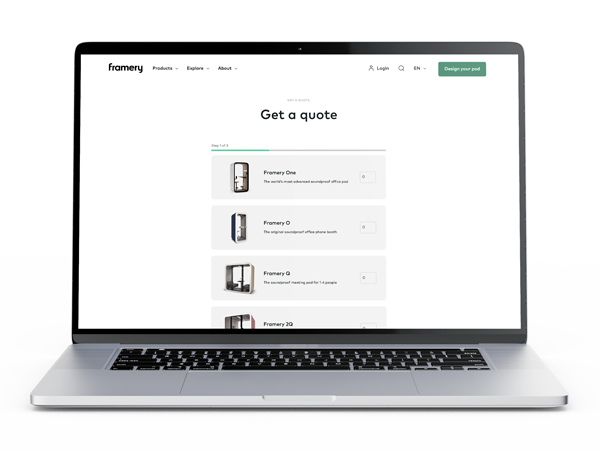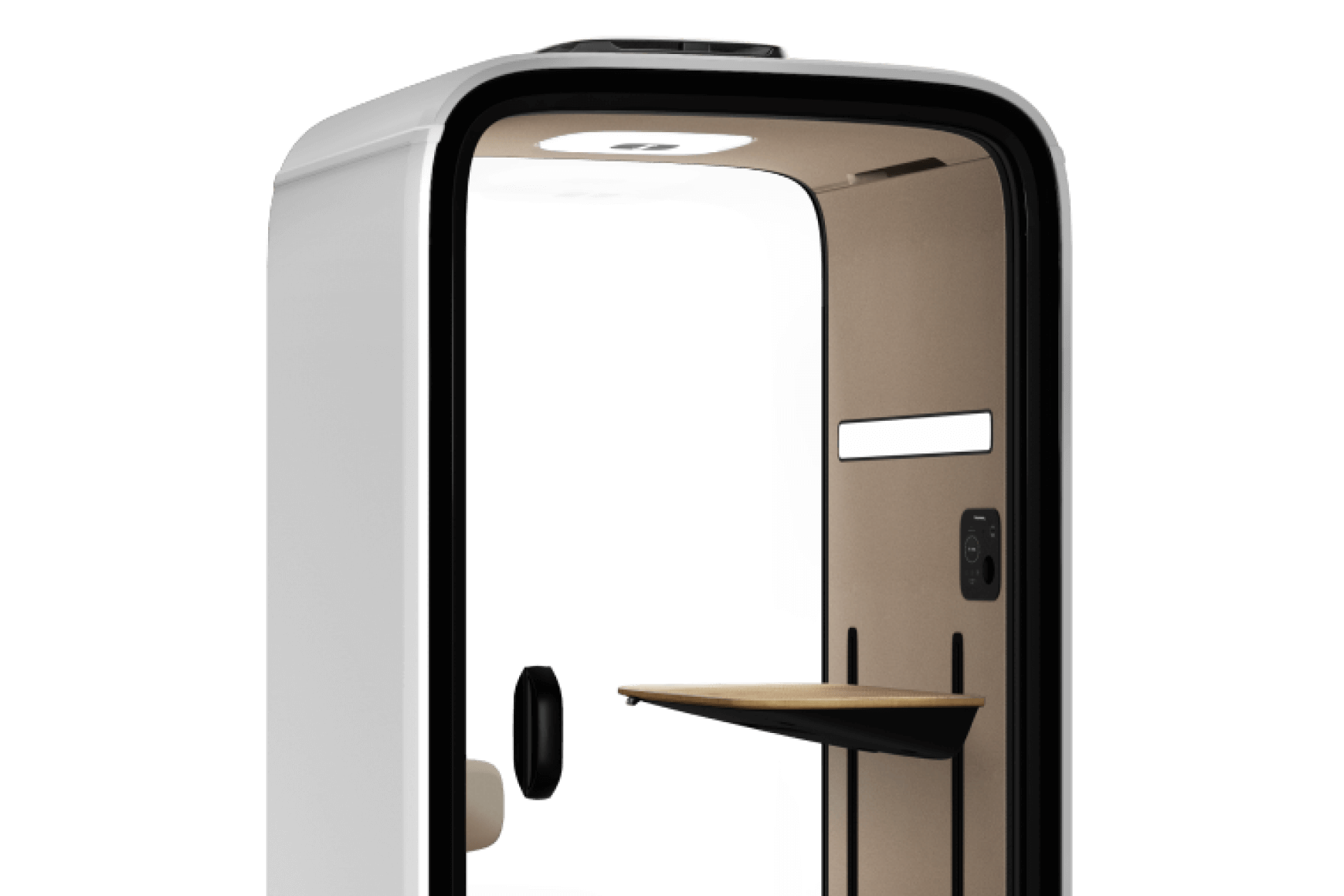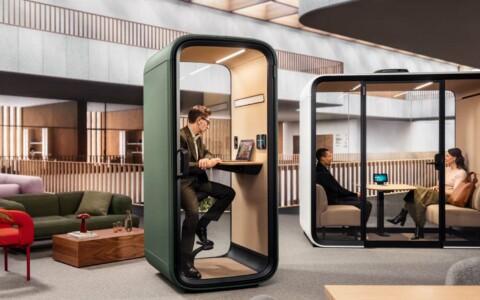When thinking about the dangers of office work, people often bring up ergonomics or the negative effects of sitting. However, workers and their employers should not overlook the cognitive toll that office work can have on overall well-being. One contributing factor to the mental strain of office work is noise. Especially offices with an open layout can be taxing for employees sensitive to office noise. However, there are instances where the right level of office noise can be, in fact, beneficial for productivity, creativity, and employee well-being. But what is the right level of office noise?
Effects of background noise in the office
Nowadays, many office workers demand their employers to allow remote work because they find it difficult to focus in a noisy, open office environment. Indeed, office noise can be a great distraction and is shown to have several negative effects on office workers’ productivity and well-being.
Excessive and disruptive office noise is effective at distracting and can make focused work a challenge. Distractions are particularly harmful to achieving a state of flow where employees are at their best when occupied with cognitive tasks and creative work. In fact, after a distracting notification or a sudden sound interrupts their workflow, employees can spend up to 20 minutes regaining their focus.
Other notable effects of excessive office noise include fatigue, increased stress levels as well as decreased motivation and job satisfaction. Then there are also the effects of noise on hearing, as prolonged exposure to loud sounds can lead to hearing loss. Although office noise clearly hinders productivity and employee satisfaction, there are benefits to having some background sound.
What is a healthy level of office noise?
If some background noise can benefit office workers, what is the right amount? A study by the University of Arizona found that the optimal office noise level is 50 decibels. This level of noise is about the same level as birdsong or moderate rain.
The study’s findings explain why many people enjoy working at coffee shops where there are always some background sounds, but the noise level never exceeds the sweet spot of 50 decibels. All the different sounds in the environment combine into ambient background noise that is less distracting.
If too much office noise is bad for you, the opposite is also true. When there are no other sounds in the environment, even the slightest disturbance can break the silence and be more pronounced than it would be in a slightly noisy setting. Some people working from home know the benefits of low-level office noise and use noise generators to improve their focus. Similarly, many have found that white noise can help them focus.
Based on a Turku University of Applied Sciences study, Framery office pods beat other soundproof booths and pods in the market. With a speech level reduction of 30.3 dB, Framery pods strike a perfect balance for the optimal level of sound reduction.

When is office noise good?
The effect of office noise on an individual employee can depend on a number of factors having to do with the noise itself but also the task, office environment, and personal differences.
- Type of work: Some tasks are much harder in a noisy office. For instance, crunching numbers and other focused tasks can suffer greatly from working in a noisy environment. Creative and collaborative work can benefit from the right amount of office noise and the everyday sounds of a busy office environment.
- Level and duration of noise: The louder the sound, the harder it is to focus. On top of that, prolonged exposure to high noise levels can damage hearing and take a toll on employees’ cognitive abilities. Sudden and loud sounds are also good at distracting workers from the task at hand.
- Source of office noise: A predictable ambient noise and background sound are less harmful for concentration and may, in fact, be beneficial in many cases. Loud conversations and irregular noise, such as alarms and notification sounds, will distract even at low levels.
- Personal preferences: People differ in their ability to handle distractions and sounds in their surroundings. While one employee needs total silence to concentrate only on their own thoughts, others can get work done despite loud distractions. Because of these individual differences, employers should offer office workers different solutions and ways of working, including quiet spaces and areas for conversing with others.
- Control over the noise: Office workers want control over their work, and the level of office noise is not an exception. When people feel they can do something about office sounds they find distracting, they are more satisfied with their work. Meanwhile, employees get frustrated, and their work suffers if they just have to cope with distracting noise.
Focusing in a noisy office
What does all of this mean for office workers and their employers? Most importantly, offices should be designed with acoustics and appropriate sound levels in mind. Perfect sound reduction is not the goal either, as complete silence can have undesired effects on office workers’ focus and well-being.
Framery office pods provide the perfect amount of sound reduction amidst disruptive office noise. The Framery O and Framery One are single-person office pods for remote meetings and focus-intensive solitary work. Small groups of up to six people can convene inside the Framery Q and Framery 2Q office booths.
Get started today
Design your own
Customize your pod and make it your own with our pod configurator.

Get a quote
Find your nearest representative to hear about pricing and get a quote for your project.

Try a pod
Visit one of our global showrooms to try any of our Framery pods for yourself.





